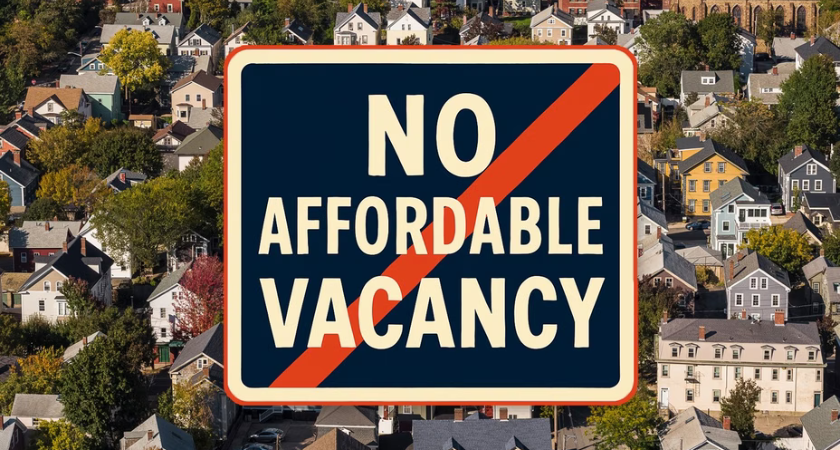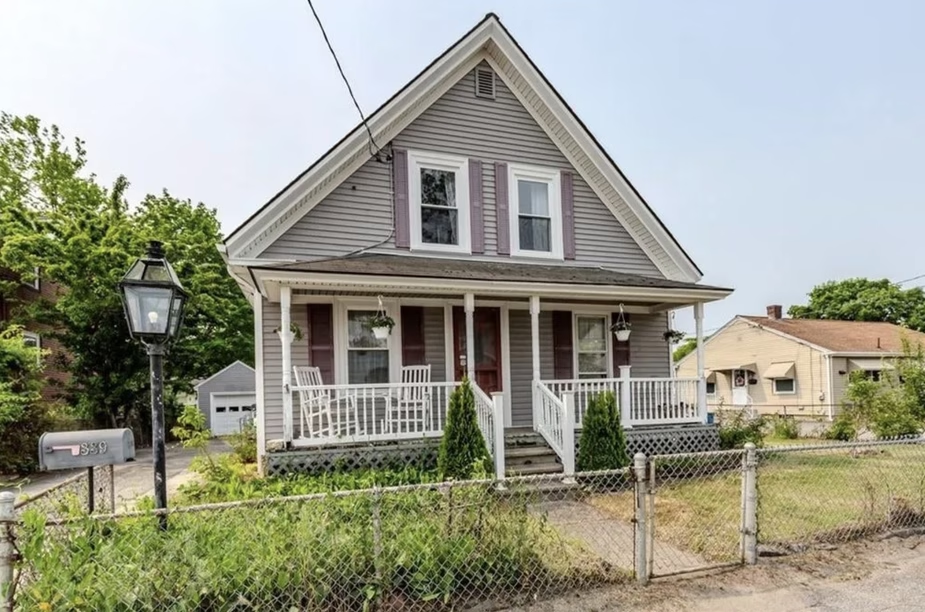
Rhode Island is facing a housing affordability crisis unlike anything the state has seen in modern history. According to new research, there is no longer a single city or town in the state where a typical household can afford to buy or rent a home, marking a dramatic shift that has left families, young adults, and even established professionals struggling to find stable housing.

For longtime Realtor® Chris Whitten, the situation feels personal. With three children entering adulthood, the Smithfield real estate broker says the state’s housing landscape leaves him deeply worried about their future.
"It's just the reality of where we're at," Whitten tells Realtor.com®. Despite strong roots in Rhode Island, he says he cannot envision his kids being able to secure a home in the next five to seven years—unless they land exceptionally well-paying jobs.
The latest 2025 Housing Fact Book, released by HousingWorks RI at Roger Williams University, offers a grim confirmation. Using 2024 median home prices, researchers concluded that not one of Rhode Island’s 39 municipalities—including 31 towns and eight cities—is affordable for the typical household, whether looking to purchase or rent.
To buy a median-priced single-family home, a household would now need close to $130,000 in annual income, factoring in a fixed 30-year mortgage, FHA financing, insurance, and property taxes. Yet the state’s median household income sits at only $86,000, leaving a staggering affordability gap.
On Block Island, where the affordability gap hits its peak, a buyer would need over $521,000 in annual income to comfortably purchase a home. Current Realtor.com data places the median listing price on the island at $3.5 million, making it the most expensive market in the state.
Even the most “affordable” city, Pawtucket, requires a yearly household income of roughly $128,000 to purchase the median-priced home of about $393,000, according to the HousingWorks RI analysis.
And for the first time ever, renting is also out of reach statewide. To afford a typical two-bedroom rental with utilities, residents need more than $60,000, while the median renter earns about $12,000 less than that.
"To some, these statistics are shocking,” says Whitten. “To us, [agents] who are boots on the ground, it's not surprising at all, as it's been kind of a growing concern we've had for almost a decade now."
Realtor.com senior economic research analyst Hannah Jones points to Rhode Island’s chronically low for-sale inventory as a major driver of the pricing surge. Before the pandemic, around 3,500 homes were typically listed for sale statewide. Six years later, listings have plunged to 1,700.
"With so few homes available, buyers are competing more intensely, driving prices higher," Jones explains.

This intense pressure—combined with stagnant wage growth and a job market that isn’t keeping pace—has left one-third of all Rhode Island households cost-burdened, meaning they spend more than 30% of their income on housing. Among them, 44% are severely cost-burdened, spending half their income on shelter.
Experts say the problem is structural. Decades of strict zoning, aggressive limits on new development, and community opposition to denser housing have created barriers that slow or block new construction, even as demand continues to rise.
Meanwhile, the state has struggled to attract or retain large-scale employers that could help raise incomes. As Whitten notes:
"We are continuously losing companies going up out of state, and on the flip side, we have more and more people that want to call Rhode Island home… It's a beautiful place."
The state’s popularity has only grown as celebrities and media attention shine a national spotlight—especially after Taylor Swift purchased an $18 million mansion in Westerly more than a decade ago.
"A lot of eyes are on Rhode Island," Whitten says. "But there's not enough housing to support [the demand] and not enough jobs to support it."
Whitten says many Rhode Islanders—especially first-time buyers—feel defeated. Homes that do hit the market often sell quickly, frequently for cash, or with “very, very heavy down payments.”
"We're seeing a lot of our buyers that just keep swinging and missing," Whitten says. "It's getting out of hand… now they just have to hang it up and wait and see what happens."
Some working families opt for smaller homes in places like Pawtucket, Coventry, or Warwick, but even those markets require compromises, such as smaller lots or fewer bedrooms.
A growing number of residents are relocating to nearby states like Connecticut or to more affordable regions such as Virginia and the Carolinas. Whitten says the trend is especially painful for families with young adults:
"It's sad because it hits home, especially for me with my 18-, 19-, and 20-year-old [children]. We're trying to come up with creative ways to have them stay in Rhode Island… but affordability-wise is saying otherwise."
Economists say the only long-term solution is dramatically expanding the housing supply.
"If new listings and construction are able to keep pace with demand, home price growth will likely moderate, and the state’s overheated market conditions could finally begin to cool," says Jones.
Whitten stresses that government officials, planners, zoning boards, and building departments must collaborate:
"We all need to get on the same page to come up with solutions on how to tackle this because there's not just one answer."
He argues that Rhode Island must:
"It's a huge hurdle," Whitten says. "There is so much red tape here in Rhode Island."
Although the state made progress with a 2024 ADU law, Whitten believes far more is needed to confront the crisis:
"It's a tough challenge, but I think if we all work together, we could come up with some plans instead of butting heads."
Originally reported by Snejana Farberov in Realtor.